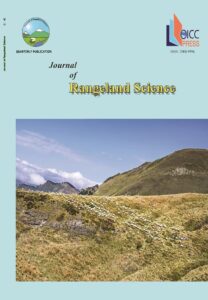Effects of a Growth Season Rain Pulse on Physiological Parameters and Phytochemical Compounds of Caper (Capparis spinosa L.)
Authors
Abstract
Growth season rain pulses affect biological and physiological activities of wild plants in arid and semi-arid regions. Despite of numerous reports on the effects of rain pulses on plant physiological indices, there is little information on how rain pulses may affect secondary metabolites of medicinal plants. Caper (Capparis spinosa L.) plays a critical role on soil conservation and economy of arid and sub-tropical inhabitants. Accordingly, present research was conducted to investigate the physiological and phytochemical responses of caper to a growth season rainfall in its natural habitat in Mazdavand, Sarakhs, Iran. Leaf samples (4 replicates) were taken 2, 4, 7 and 10 days after a natural rain event (10 mm) in 17 May 2018. Results showed increase of antioxidant enzymes (catalase and ascorbate peroxidase activity by 77 and 34 %, respectively) and decrease (23%) in proline content by the day after the rain pulse, whereas, photosynthetic pigments were not affected by soil moisture changes. Total alkaloid content was higher (16%) in vegetative than reproductive phase. From the secondary metabolites and 14 major phytochemical compounds detected in leaf extract, phenol content was reduced whereas alkaloid content increased by decreasing soil moisture during the days after rainfall. In conclusions, the phytochemical compounds showed contrasting (increase or decrease) responses to the soil moisture pulse and inter-pulse conditions. These results indicate the best time of leaf harvest to achieve highest concentrations of specific secondary metabolites after the growth season rain pulses.




